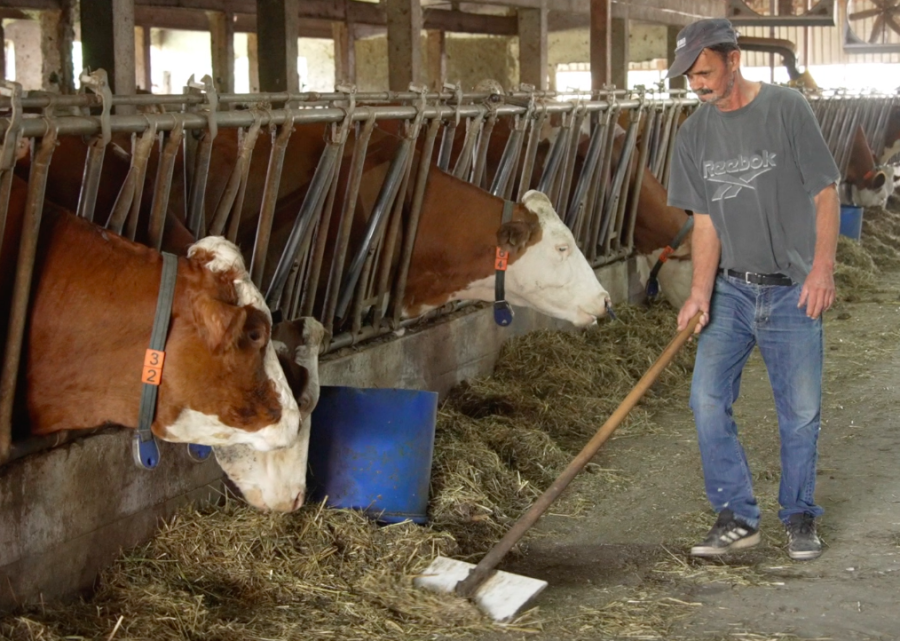Learn why Serbian farmers are protesting low dairy sales and increased imports. Can local governments help the Balkan dairy industry?

Imagine your morning coffee without its creamy touch or yogurt and cheese becoming distant memories. This harsh reality is unfolding for the dairy industry in the Balkans, especially in Serbia. In 2023, Serbian farmers protested against plummeting sales, struggling businesses, and overwhelming imports. Farmers are calling for market regulation, subsidies, and a ban on milk imports. This article explores the crisis in the Balkan dairy industry and the urgent need for government support to sustain local production.
| Year | Total Farms in Serbia | Farms Closed | Excess Dairy Imports (in tons) | Available Government Subsidies (in millions €) |
|---|---|---|---|---|
| 2013 | 150,000 | 10,000 | 5,000 | 50 |
| 2015 | 130,000 | 12,000 | 8,000 | 45 |
| 2017 | 110,000 | 15,000 | 10,000 | 40 |
| 2019 | 90,000 | 12,000 | 15,000 | 35 |
| 2021 | 75,000 | 9,000 | 20,000 | 30 |
| 2023 | 62,000 | 10,000 | 25,000 | 25 |
The dairy industry in the Balkans has seen tough times, hitting Serbia particularly hard. Over the past decade, 62,000 farms have closed, bringing the industry’s productivity to pre-World War I levels. The shutdowns and competitive EU imports have dramatically reshaped the landscape. This shift underscores economic pressures and reveals deeper structural issues in local dairy production.
Small local farms in the Balkan region struggle to compete with cheaper EU imports. These heavily subsidized imports have driven down local dairy product sales, making it tough for small farms to survive.
These challenges have led many farmers to shut down, resulting in a loss of livelihood for many and impacting local economies that depend on farming.
Socially, the decline of dairy farms is causing rural depopulation as families move to cities for better opportunities. This shift erodes traditional agricultural practices and the cultural heritage of farming communities.
The relentless competition from EU imports pushes the Balkan region into a socio-economic crisis. Government support is crucial to level the playing field and secure the future of local dairy farming.
Serbian farmers are clear in their demands. They want market regulation for agricultural products to assure fair pricing. They also seek a ban on milk imports to protect local producers from cheap, subsidized EU dairy products. Additionally, they are pushing for higher subsidies to support the local dairy industry, enabling small farms to upgrade and sustain their operations. Farmers believe these measures are essential for the dairy sector’s survival and growth in Serbia.
The Balkan governments are tackling the dairy crisis with various strategies. In Serbia, the Ministry of Agriculture plans to support small and medium-sized farms using financial aid and improved farm management practices to meet EU standards. Farms with five or more milking cows have better chances of survival.
Subsidies for milk production and modernizing dairy infrastructure are being implemented to assist dairy farmers. Some Balkan governments are also considering controlling imports and supporting local production.
Increasing quotas for domestically produced dairy in public institutions such as schools and hospitals will ensure a steady market for local farmers. Tax breaks and financial incentives to reduce operational costs for dairy producers are also being considered. While these measures are a good start, more comprehensive actions are needed to secure the future of the dairy industry in the Balkans.
Despite the tough times, there’s hope. Consumer interest in dairy and dairy alternatives is rising, driven by health and wellness trends. People seek natural and organic foods, opening doors for local milk producers. As health-conscious consumers demand high-quality, locally sourced products, the dairy sector might see a revival, supporting local farmers and businesses.
Local governments in the Balkans must tackle the pressing issues in the dairy sector. Creating a supportive regulatory environment can protect local production and ensure economic stability.
Strategic actions like market regulation and subsidies for local farmers are essential. These measures can help small farms compete with EU imports and boost consumer interest in local dairy products.
Encouraging modernization and professional management, especially for farms meeting EU standards, can improve product quality and market competitiveness. Without these efforts, the dairy industry’s decline may continue.
Prioritizing these steps is crucial to revitalizing and sustaining the dairy industry in the future.
Balkan dairy farmers face numerous challenges, including falling sales and increased EU competition. However, there’s hope. Addressing market regulation and boosting subsidies can stabilize the local sector. Moreover, growing consumer interest in dairy products and alternatives offers a unique growth opportunity. The Balkan dairy sector can thrive by fostering industry collaboration, embracing new technologies, and professionalizing farm management. Effective government intervention and strategic practices are crucial to revitalizing this vital industry.
Key Takeaways:
- Serbian farmers are protesting in response to falling sales and increasing imports, hampering local dairy business.
- The Balkan dairy industry has experienced a significant decline, with 62,000 farms shutting down in Serbia over the past decade.
- Small farms struggle to compete with cheaper EU imports, leading to an industry output comparable to pre-World War I levels.
- Farmers are urging for market regulation, subsidies, and a ban on milk imports to stabilize the industry.
- Despite challenges, growing consumer interest in health-conscious dairy products offers a glimmer of hope.
- Governments in the Balkans are tasked with modernizing dairy infrastructure and supporting local production to revive the sector.











